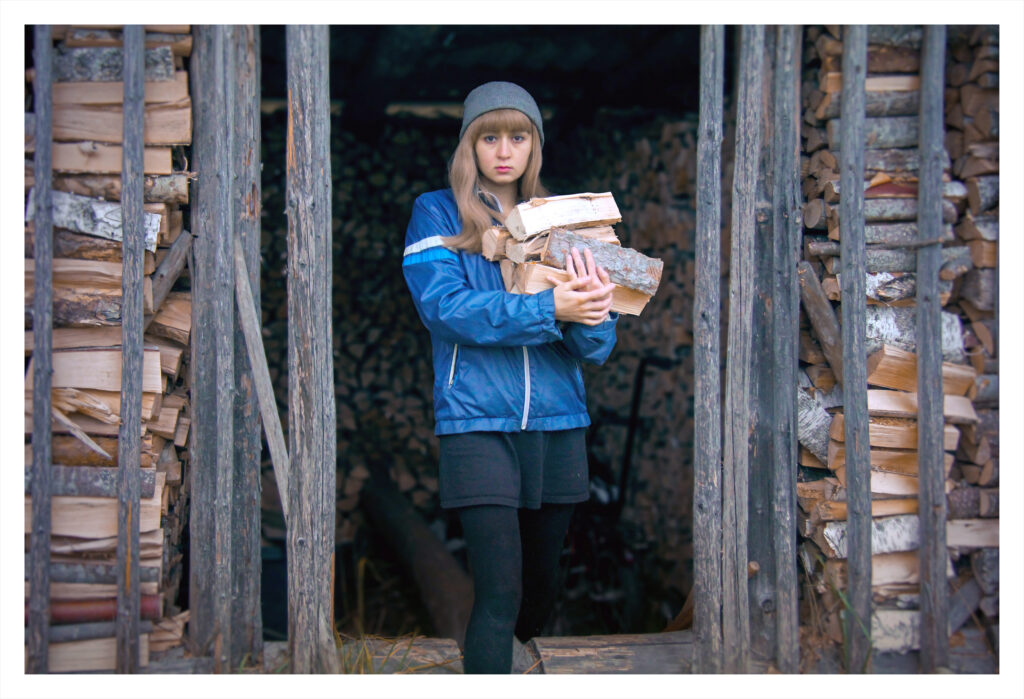
Bita Razavi (1983) is a multidisciplinary artist whose practice is centered around observations on everyday situations and bringing the personal to the public sphere. She sheds light on the inner workings of social systems in relation to the political structures of various countries. She reacts to, and explores, the agency of the objects and the systems as they act upon her, and as she documents and records them.
For her graduation project “How to Do Things with Words (A Legal Performance)” (2011) at the Finnish Academy of Fine Arts, she carried out an artistic ceremony, in which she married the artist Jaakko Karhunen in reaction to worsened immigration policies, the rise of a populist right wing party and their introduction of lowering the funds for contemporary art. The project ended in 2017 with a public divorce ceremony. In 2020 Museum of Contemporary Art Kiasma obtained both works in the form of video installations and personal valuables in their collection.
Because of her experience of living in Iran, Estonia and Finland, Razavi is well equipped to reflect on the relationships of these cultures and on the perception of her heritage in the Western world. For instance, Razavi’s work “Pictures from Our Future, Pictures from Our Past” (2018) started from a situation on the street in Tartu where a young man said Razavi was a “picture of the future of Estonia”. In the series of photographs, we see Razavi embodying the average Estonian woman in various everyday roles. It also features photographs of empty country houses that have been abandoned, while dropping hints towards the radical social changes connected with the refugee crisis and urbanisation processes, but also the memory of the violent deportations in Estonia’s past.
Alongside her autofictional works, the installation “The Dog Days Will Be Over Soon” (2019) combining ready-made images from videogames and objects like PC hardware together with live moss and other plans, she points towards both the merging of artificial and natural materials, and the growing distance between humans and wild nature.
Regardless of the subject matter and chosen technique, Razavi’s work often embodies the qualities of a tactical tool. The language games and materials is a ruse to bring us face to face with difficult ethical questions, be they social or ecological. An example of this is “A Coloring Book For Concerned Adults” (2017 – ongoing), a riff on the plethora of colouring books of mandalas, plants, etc. marketed as a stress relieving pastime for people of all ages. In Razavi’s series of colouring sheets she instead addresses various global and local issues such as Iran-US relations, lack of social security or industrial pollution.
Over four years, Razavi has been renovating an abandoned house in the Estonian countryside and an apartment in Tartu, documenting the prosaic tasks done and also gathering different tools and traces that she encountered during the rebuilding process as if it were contemporary archeology. “Museum of Baltic Remont” (2019) shows the renovation customs specific to the Baltic region and by careful observation of materials, makes up a form of storytelling.
Bita Razavi in collaboration with the artist Kristina Norman and curator Corina L. Apostol, were selected to represent Estonia in the 59th Venice Biennial in 2022. Their project entitled “Orchidelirium. An Appetite for Abundance” deals with subjects like nationhood, belonging, and colonial exploitation through the representation of tropical plants. It also includes works by Emilie Rosalie Saal (1871-1954), a painter who was born in Tartu, educated in St. Petersburg, and is best known for her numerous paintings of tropical plants that she made in Indonesia (that time the Dutch East Indies) where she spent 22 years. She was a cross-cultural figure who exemplifies how people have always been interconnected with regions far-off, just as the authors of the “Orchidelirium” project Razavi, Norman and Apostol, who use Estonia as a meeting point for an agency that is above the nationalities and territories linked to them.
Bita Razavi graduated in Music from Tehran Art University (BA, 2008) and in Fine Art from the Finnish Academy of Fine Arts, Helsinki (MA, 2013). She has had residencies in ISCP, New York (2017), Culture Factory Polymer, Tallinn (2013), MoKS, Mooste (2013), Nida Art Colony (2011) and HIAP, Suomenlinna (2011).
She has exhibited her work at the Tehran Museum of Contemporary Art, 1st Trondheim Biennale, Norway, Finnish Museum of Photography, XV Biennale de la Méditerranée, Thessaloniki, Helsinki Photography Biennale, Design Museum, Helsinki, Videobrasil, SESC Pompeia, Cité international des Arts, Paris, Fotografisk Center, Copenhagen, Göteborg International Biennal for Contemporary Art, National Art Museum of Ukraine, and Survival Kit 10.0.
Razavi has received the Oskar Öflunds Foundation’s grand prize for young prominent artists (2017) and award of best documentary in d’Aubagne Film Festival for Golden Dances (2008).